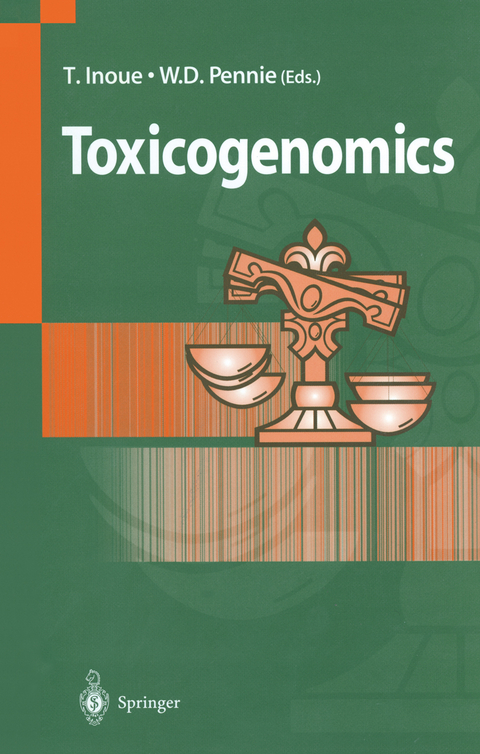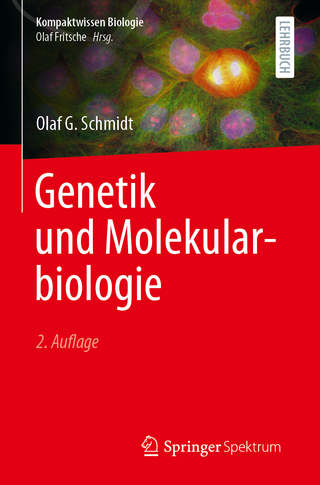
Toxicogenomics
Springer Verlag, Japan
978-4-431-70344-0 (ISBN)
The meteoric rate at which the human genome is being sequenced has presented to the research community a vast array of newly discovered genes, which in tum has catalyzed an even more dramatic effort to decipher this voluminous data set into understanding how genes function both individually and in complex pathways that regulate the biochemistry of life. A compendium of gene expression data, enhanced by complete proteomic analysis, will enable investigators to probe into the complexities of the mechanisms of normal genetic and metabolic pathways and, subsequently, how disease occurs when they malfunction. The new science of toxicogenomics combines genomic, proteomic, and informatics technologies, and biological research can now foresee a time when there will be a full comprehension of the complex dynamic mechanisms of genetics, biochemistry, and physiology. The inherent power of toxicogenomics derives from an amalgamation of multiple scientific disciplines that were originally drawn together to facilitate sequencing the three billion bases that comprise the human genome. Traditionally, the science of toxicology has been founded upon empirical codification of dose-related effects. It has evolved to studies that are directed towards understanding the mechanisms by which individual agents cause their effects in humans. Due to technical limitations, this process has been relatively slow, since it has accomplished one chemical or one effect at a time.
Introductory Keynotes.- Introduction: Toxicogenomics — A New Paradigm of Toxicology.- Toxicogenomics in Genome Science World.- Application of Transcript Profiling to Mechanism-Based Toxicology.- Strategy for Toxicogenomics.- Application of DNA Microarrays for Predicting Toxicity and Evaluating Cross-Species Extrapolation.- Use of Reverse Genetics and cDNA Arrays to Understand ‘Dioxin’ Toxicity.- Technical Development (Genomics and Proteomics).- Applications of Gene Arrays in Toxicology.- The ToxExpress™ Module: Applying Gene Expression Data to Predictive Toxicology.- Taming the Mass of Microarray Data: Systematic Approaches to Gene Expression Analysis.- Applications of ProteinChip® Systems in Toxicological Assessment.- Experimental Applications (1) — Oncology Research.- Toxicogenomics: Making Progress by Maintaining a Focus on the Fundamentals of Toxicology.- A Microarray Analysis of Differential Gene Expression Associated with the Development of Doxorubicin Resistance in Breast Carcinoma.- Screening Trial of Cancer Chemopreventive Agent by Using Combination of DNA Chip Technology and Cell Signaling Network DataBase (CSNDB).- Application of Methacarn Fixation for Genetic Analysis in Microdissected Paraffin-Embedded Tissue Specimens.- Experimental Applications (2) — Xenobiotic Metabolism.- ABC Transporters: A New Approach to Toxicogenomics.- SXR and the Xenobiotic Response.- Experimental Applications (3) — Endocrine Disruptor Research.- C. elegance as a Tool for Environmental Toxicology.- Development of the Test Method for Detection of Endocrine-Disrupting Activity Using DNA Microarrays.- Application of cDNA Microarray for Uterotrophic Assay.- Large-Scale Gene Expression Analysis for Evaluation of Endocrine Disruptors.- Analysis of Toxicogenomic Responseto Endocrine Disruptors in the Mouse Testis.- Gene Expression Profiling to Identify Mechanisms of Male Reproductive Toxicity.- Future Prospects and Risk Assessment.- Toxicology and Genetic Toxicology in the New Era of “Toxicogenomics”: Impact of “-omics” Technologies.- Use of Genomics in Mechanism Based Risk Assessment.- Chemogenomics for Predictive Drug Assessment.- Reverse Toxicology as a Future Predictive Toxicology.
| Erscheint lt. Verlag | 9.10.2002 |
|---|---|
| Zusatzinfo | XXIII, 228 p. |
| Verlagsort | Tokyo |
| Sprache | englisch |
| Maße | 155 x 235 mm |
| Themenwelt | Medizin / Pharmazie ► Medizinische Fachgebiete ► Pharmakologie / Pharmakotherapie |
| Medizin / Pharmazie ► Pharmazie | |
| Studium ► 2. Studienabschnitt (Klinik) ► Humangenetik | |
| Studium ► 2. Studienabschnitt (Klinik) ► Pharmakologie / Toxikologie | |
| ISBN-10 | 4-431-70344-6 / 4431703446 |
| ISBN-13 | 978-4-431-70344-0 / 9784431703440 |
| Zustand | Neuware |
| Haben Sie eine Frage zum Produkt? |
aus dem Bereich


